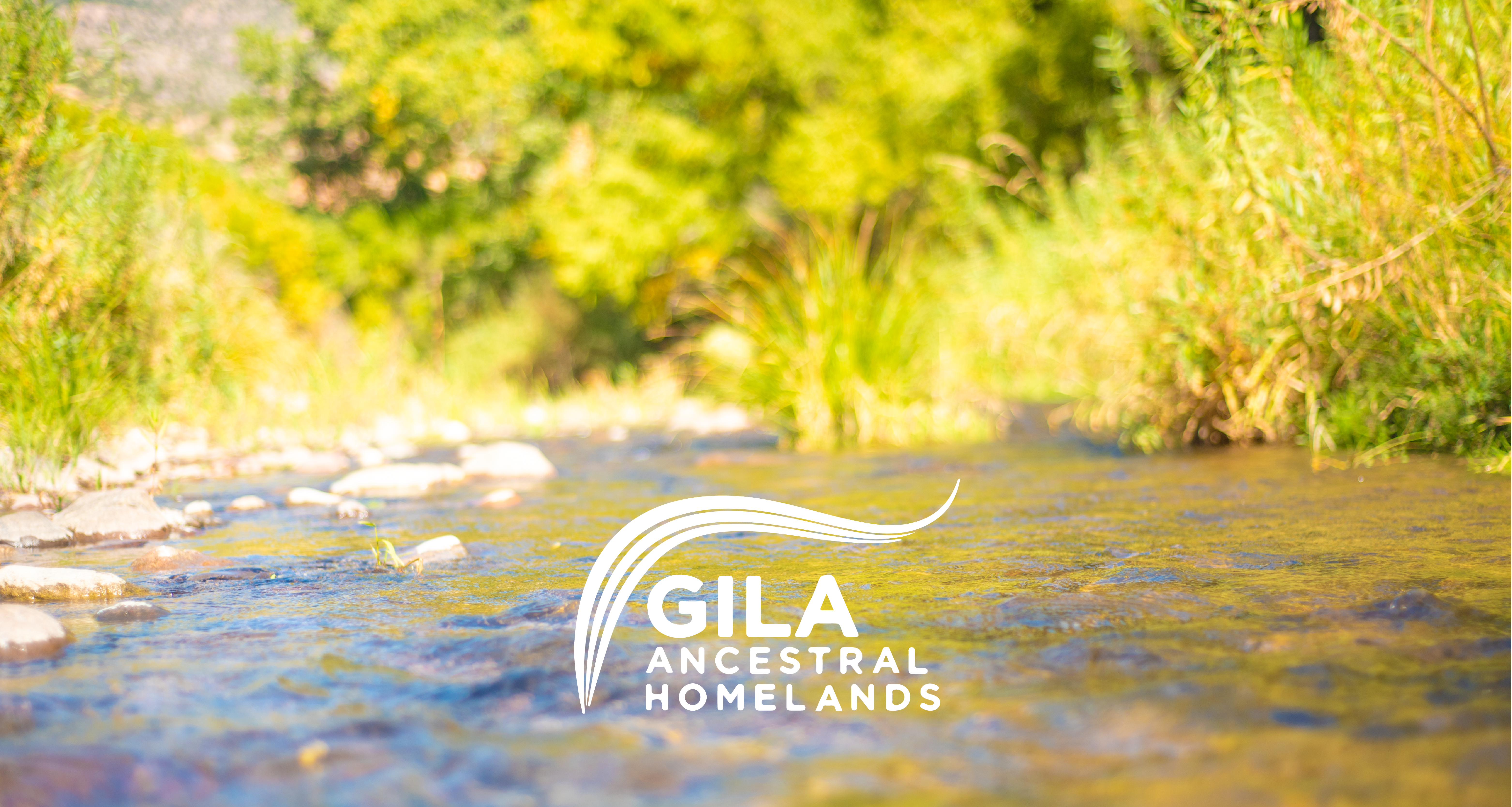Before and Beyond: celebrating the Gila Wilderness centennial
February 7, 2024 - Geneva Sandoval and Irene Gray
Over 80 years ago, the United States removed the Gila Apache from the Office of Indian Affairs’ Indian Tribes list despite being recognized as a federal tribe for nearly nine decades. Today, the tribe has reclaimed their Gileño and Mimbreño identity in their language as Chíhéne Nde. Ruben Leyva, a Chíhéne historian and scholar, and Ph.D. student in the Department of Native American Studies, is working to ensure that they regain their sovereignty.
 Leyva will share his story on February 9 as part of The Gila Wilderness: Before and Beyond, a centennial celebration in honor of the Gila and the Indigenous ancestral homeland that the wilderness encompasses across its 500,000 acres. This is bittersweet commemoration for Leyva and his people as this effort displaced many Chíhéne from their homes.
Leyva will share his story on February 9 as part of The Gila Wilderness: Before and Beyond, a centennial celebration in honor of the Gila and the Indigenous ancestral homeland that the wilderness encompasses across its 500,000 acres. This is bittersweet commemoration for Leyva and his people as this effort displaced many Chíhéne from their homes.
As a Gila Apache, Leyva’s presentation, “Apache Homelands and the Gila Wilderness”, will explore the Chíhéne’s connection to the Gila[Chi’laa], and the essential role the Wilderness serves in defining their identity, culture, and community.
In 1855, the United States established a treaty with the tribe’s ancestors, referring to them as the “Mimbres Bands of Gila Apaches.” Two prior treaties had been established and all treaties were interrupted due to the Civil War.
Leyva says, “By 1877, the government defaulted on it promises of a Gila Apache Indian Reservation by dissolving the Southern Apache Indian Agency and transferring Gila lands in reserve to the public domain on January 30, 1882.” For over six decades, the Chíhéne continued to live at the Southern Apache Indian Agency locations at Fort Thorn, Mesilla, Fort Craig, and Cañada Alamosa according to Census records from 1860 to 1920.
Now considered non-reservation Apache Indians, Chíhéne continue to live and farm in the communities as their ancestors had since time immemorial. However, their land became increasingly privatized and commercialized, resulting in the dispossession and displacement of many families from these communities.
Leyva says that, “The Gila National Forest and Wilderness, Cibola National Forest, water reclamation projects on the Rio Grande River, and the mining at Santa Rita are examples of government policy and commercialism resulting in the expropriation of water and forest lands. These development projects destroyed some of the tribe’s family farms.”
The tribe was recognized by the federal government through 1940, but soon after that, the acknowledgement was removed. They were able to obtain nonprofit status in 2008 which allowed for the development and centralization of political leadership, but this is not enough to ensure the security and wellbeing of future generations.
Federal acknowledgement will provide opportunities such as the, “assistance and resources necessary to address disparities in health, education, rights to religious freedom, and protection of sacred sites,“ Leyva says.
On December 6, 2023, President Biden signed the Reforming Federal Funding and Support for Tribal Nations to Better Embrace Our Trust Responsibilities and Promote the Next Era of Tribal Self Determination. This historic Executive Order provides tribes with greater authority over their own sovereignty.
Leyva is looking forward to what this means for the next chapter in the Chíhéne Nde Nation’s quest for acknowledgement.
“The Chíhéne Nde Nation filed with the Department of the Interior's Office of Federal Acknowledgment (OFA) on January 4, 2024, to be re-acknowledged as a U.S. tribe. The nation seeks to be re-acknowledged through the OFA process to strengthen the sacred bond between Chíhéne communities and their homeland in southwest New Mexico. Formal acknowledgment will allow the tribe to rebuild its political, social, and land-based relationship with the U.S. government.”
As the assistant tribal historian for the Chíhéne Nde Nation of New Mexico, Leyva’s research into the historical documentation of the Gila Apache was integral to filing the petition to the OFA. In addition to this, Leyva spent 28 years in law enforcement and is an alumnus of the Robert Presley Institute of Criminal Investigations, the Federal Bureau of Investigations Law Enforcement Leadership Studies Program, and the Harvard Kennedy School of State and Local Governments.
Leyva’s expertise will offer a unique lens to his presentation, which he hopes will help raise awareness and understanding of his people, their connection to the land, and the injustices they have faced.
In 1924, the Aldo Leopold Wilderness in southwestern New Mexico became America’s first designated wilderness, predating the Wilderness Act by four decades. In recognition of the 100th anniversary of this significant milestone in our country’s history of conservation, organizations throughout the state are coming together to honor its rich natural and cultural heritage in a months-long celebration.
Leyva's presentation will be conducted via Zoom on Friday, February 9 at 3:00 PM. Contact Michelle Hall Kells at mkells@unm.edu for the Zoom link and passcode. All Zoom lectures will also be recorded and uploaded to the Gila Digital Hub here.
The Gila Wilderness Centennial is sponsored in part by the UNM College of Arts & Sciences, the Institute for American Indian Research (IFAIR), the Sustainability Studies program, the R.H. Mallory Center for Community Geography, the Southwest Hispanic Research Institute, the Department of Chicana & Chicano Studies, the Center for Regional Studies, and the Alfonso Ortiz Center for Intercultural Studies. For a full list of sponsors, please click here.
The next event for the Gila Wilderness Centennial anniversary will take place on February 23 at 3 PM with a presentation by Dr. Christina Castro of the Three Sisters Collective titled, "Earth Healing & Indigenous Wisdom".
For a full list of events in honor of the Gila Wilderness Centennial, please go to GilaWildernessCentennial.wordpress.com .
